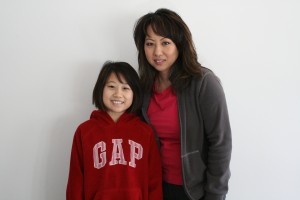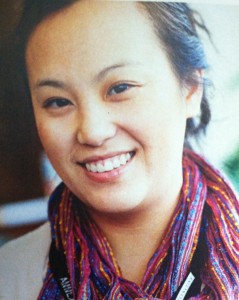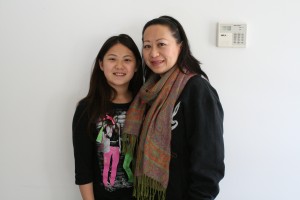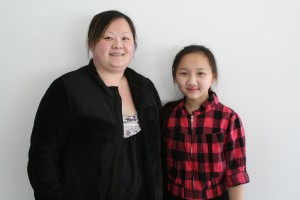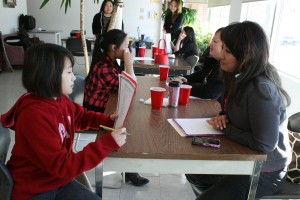Growing up as a teen in a small town in Wisconsin, Kaonou Hang was taught that it was inappropriate for a proper Hmong girl to talk about sexual health issues – whether it was about boyfriends and sex, her monthly periods or simply using words for the female anatomy. This just wasn’t done in her culture and therefore relied on her friends’ knowledge to understand the changes that were occurring in her body as she grew into adulthood.
After graduating with a degree in biology with a special interest in maternal and child health, Kaonou decided that her 9-year old daughter’s experience of puberty was going to be very different. She attended, along with other Hmong mothers, a workshop run by the Annex Teen Clinic, a Minneapolis-based health clinic for young people. The workshop, entitled “Celebration of Change”, created space for mothers and daughters to talk about sexual health issues with a focus on the young girls’ expectations of going through puberty. The program is a part of the Eliminating Health Disparities Initiative of the Minnesota Department of Health’s Office of Minority and Multicultural Health.
Kaonou Hang, an independent oriental medicine specialist, wrote:
As a mother of a pre-teen girl, I wanted make sure my daughter’s experience of puberty was going to be a positive one. I also knew this was something the whole Hmong American community needed, not just me. After speaking to several community organizations, I came across the Annex Teen Clinic in North Minneapolis who had put together a sexual health curriculum called “Celebrations of Change” for African-American mothers and daughters. This was what I had been searching for. My daughter and I, along with two other pairs of Hmong mothers and daughters were the first Asian American group to use the curriculum that was adapted for Asian Americans. I have to admit, even with my science and medical background, going into the Celebration of Change event was a little scary. I thought it was going to be filled with some serious heavy material. Instead, it was the complete opposite. It was fun, the dialogue was eye opening, and the time passed by way too quickly. The event truly felt like a celebration of becoming a woman. Even though we were unable to cover every topic on puberty, this day allowed our daughters to know that they could come talk to us, their moms about this and any other topic. The girls, the mothers and the instructors all thought the event was a success and the program will be rolled out to the local community in the near future.
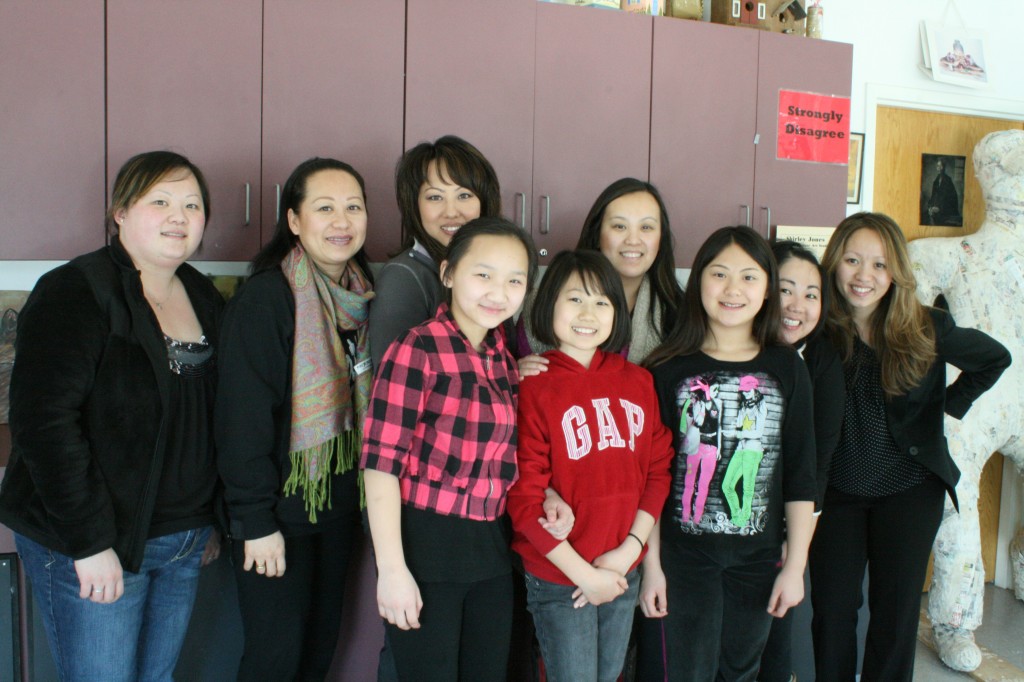
Celebration of Change Event was held on Saturday, March 2, 2013 at the Annex REACH Community Office Teen Clinic in Minneapolis – A Photo of the Mothers and Daughters who attended the event.
To learn more about the Celebration of Change event and Annex Teen Clinic, we asked health educator Song Thao, the facilitator who conducted the workshop, a few questions.
What is the Annex Teen Clinic?
The Annex Teen Clinic is a sexual health clinic made for young people. We serve anyone up to the age of 26 years old. We serve all communities in our area.
What do you do at Annex Teen Clinic?
As a health educator, a big part of my job is doing a federal grant-funded program called the Teen Outreach Program (TOP) in the schools that focus on healthy youth development. It is a teen pregnancy prevention program designed to help young people make better decisions and to grow into an overall healthy teen.
What is the Celebration of Change Workshop?
The Celebration of Change workshop is an event that started a couple years ago. It is a flexible workshop that can be implemented over a few weeks, a weekend, or a full day retreat that explores healthy mother/daughter communication and healthy development during the stage of puberty. It is a program intended to help bridge the communication lines between mothers and daughters and to celebrate the time when young daughters are about to go through puberty. The purpose is to get mothers & daughters comfortable with talking about the changes that will take place in their bodies and to celebrate this time of change.
How did the curriculum for Celebration of Change come about?
The curriculum for the Celebration of Change was developed in 1996 in an attempt to strengthen family communication around sexual health and development. It was created by a series of community members from different organizations who felt strongly about this topic.
How did you and others tailor the curriculum for the Celebration of Change Workshop to fit the Hmong community?
We kept a lot of the same information but took some information or activities out that we felt weren’t relevant to the Hmong community and we added some information that we felt the Hmong community could relate to. I met with a few community members to gain their inputs and to figure out what would work best and get the message across the easiest.
What did you find that you had to do differently with the curriculum so it would be more culturally appropriate for Hmong girls and their moms?
I felt that because talking about body parts and development was always a taboo that by just being comfortable talking about it. I also had to explain some words in Hmong or use some kind of Hmong reference/example to get them to fully understand some of the terms we were referring to.
Why do you think its important for Hmong girls and their moms to go through this workshop?
I think it’s extremely important for mothers and daughters of any cultural group to go through this workshop but especially important for the Hmong community to go through it because it’s definitely something different. It opens up the door for communication and gives mothers and daughters a chance to connect in a different way and really deepen their relationship.
What did you find most surprising about having Hmong girls and moms go through the workshop compared to girls and moms who are not Hmong?
Because this was a pilot program to see how well the Hmong community would perceive the program, I have not actually been able to compare it to other workshops. But we do have other culturally specific celebration of change workshops that have been done in the past with the American (White) culture and the African American culture.
What have you found that helps working with Southeast Asian girls and moms to have them talk about these subjects?
I think having them split into the mother, daughter groups really helps because then they feel more free to talk or ask questions as they wish until they feel a little more comfortable. I also think that incorporating different types of activities that still teach about sexuality really helps eases them as well as using activities that both mother and daughter can do together really helps.
Why do you think it’s difficult for Southeast Asian cultures to talk about subjects like periods, sexuality, bodies etc?
I think it’s difficult for Southeast Asians to talk about sexuality because it is a taboo in our culture. Also because we don’t have all the terms and words that the Western culture has. And because it’s a generational thing. Our parents’ parents have never talked to them because their parents haven’t talked to them and so on and that’s why our parents now don’t know how to talk to us about it. But that’s part of the reason for this workshop; it is to break the cycle so that we can freely talk about sexuality and not make it seem like it’s a bad or dirty thing to do but an educational tool.

